The Warrior’s Rest. Edouard Peurichard interactive personalities
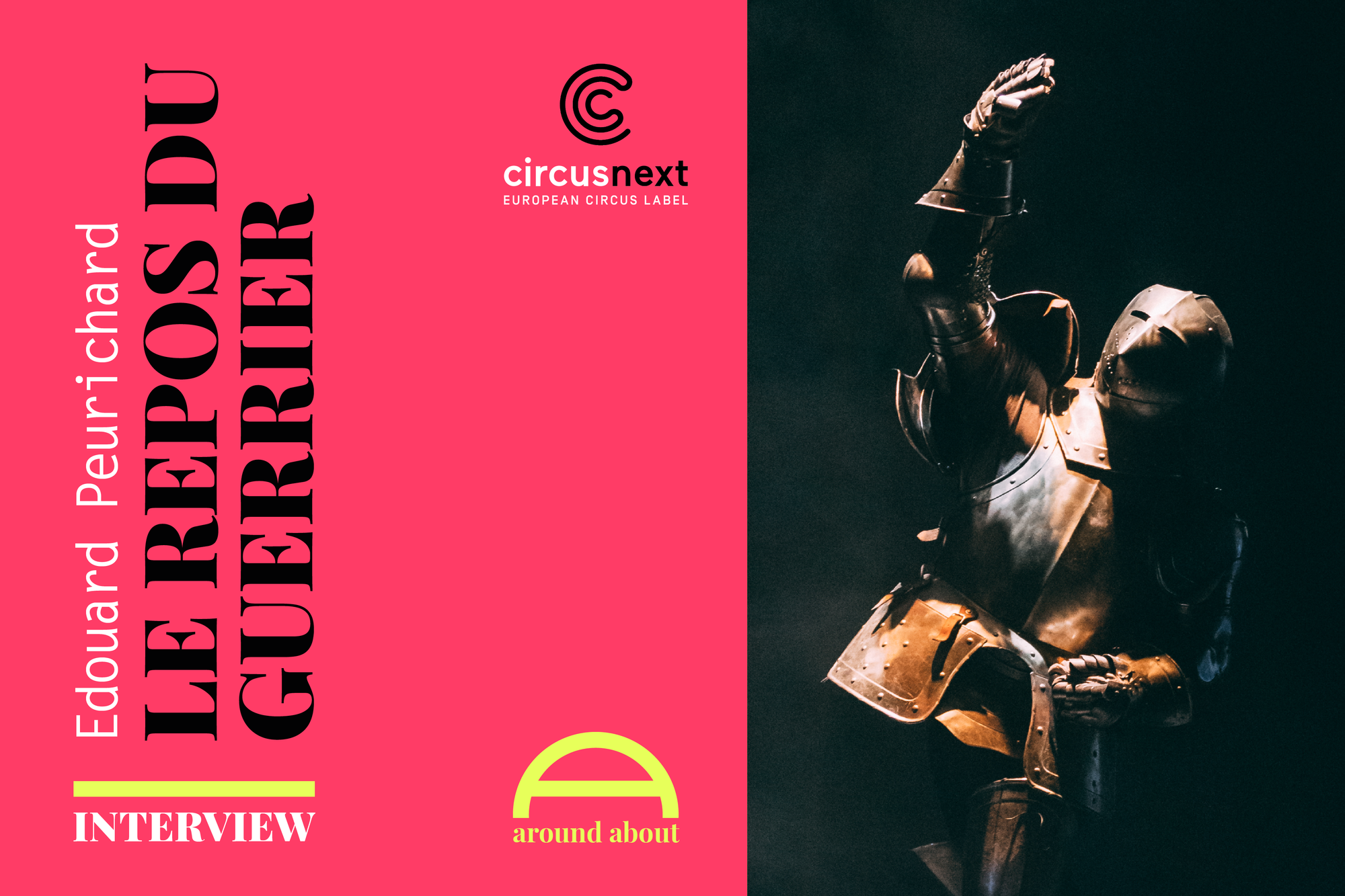
Edouard Peurichard is the author of the solo Le Repos du Guerrier (The Warrior’s Rest), a circus piece with standup comedy vibes, generating direct interaction with the audience and volunteer involvement on stage. By using a digital dimension to create illusions, the show is a personal portrait that engages in a dialogue with the spectators and, simultaneously, is a hommage to circus and its transformative power to give words to something we cannot define inside of us. Throwing knives at strangers, phantom dialogues, mixing metaphoric acrobatics with weird costumes, and going back to childhood tapes are just some of the situations in the cocktail. This performance highlights the internal struggle for expression that we all face, and the trial and error that comes with it. Through revealing this journey Edouard makes the personal a collective experience, and masters the ceremony of this exchange. For the circusnext series of interviews, we met Edouard in his French ‘fortress’ in Toulouse to discover more about the core passions of his cool weirdness.
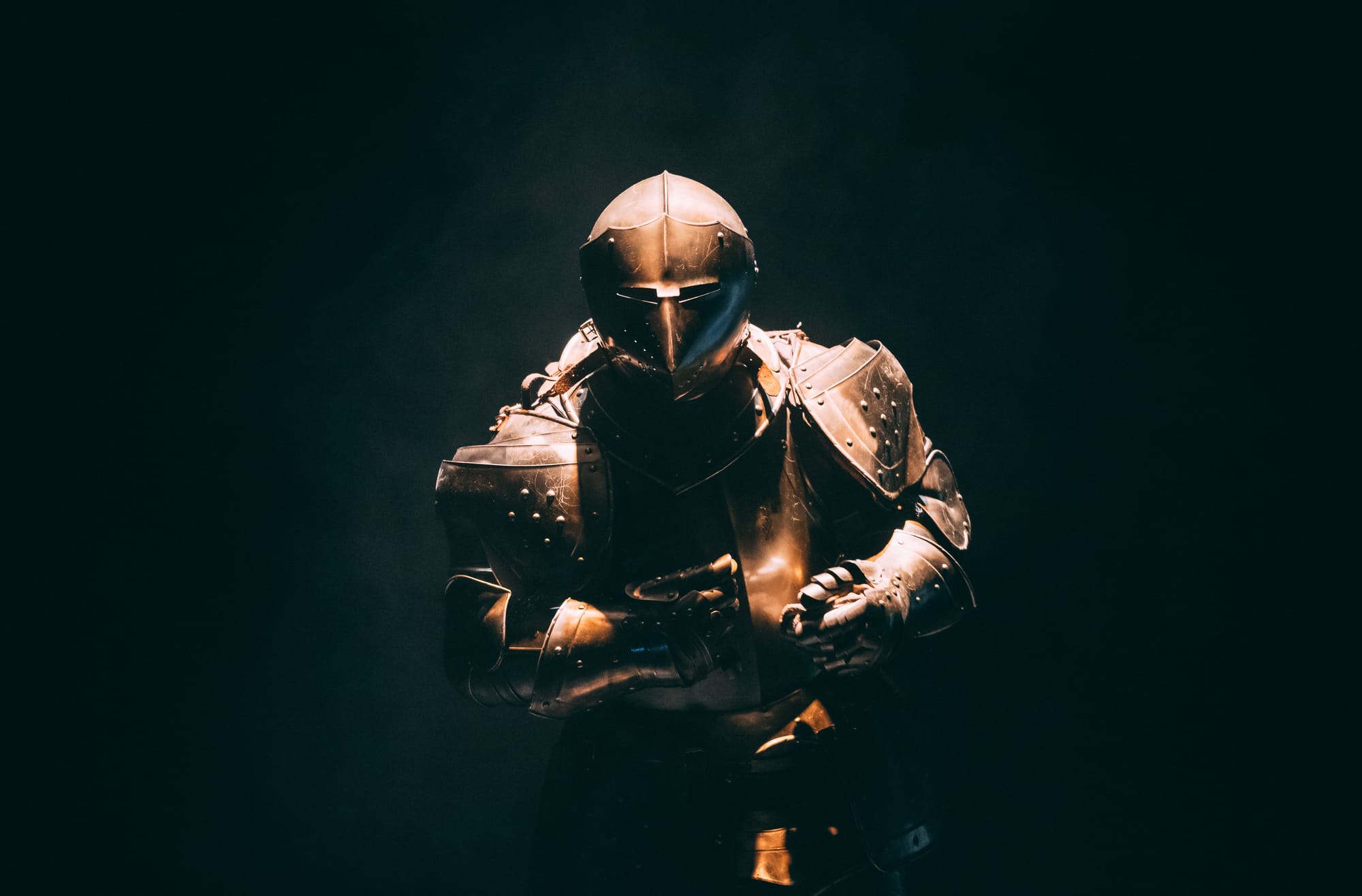
When did you discover circus?
EP: It is funny to think about that, since, in the end, I started circus with my grandparents. My grandmother is Portuguese and was adopted by a traditional circus family when she was young. She studied acrobatics and contortionism and used to meld them with Fado singing. My grandfather was an electrician and came to the circus as a technician. They met, fell in love, and tried to create something else together as a clown duo. I have an ambivalent feeling towards my grandfather. There are masculine traits of his personality I did not like or have at all. It sounds weird knowing I started circus as an electrician, and then I became a performer and actor as he did.
What was your perception of circus at that time?
EP: Knowing about circus from my grandparents, it was evident that they disliked its precarious condition. At that time in Portugal, circus was not very remunerative, but they chose it. However, with eight children, it was complicated then to live with it. They felt uncomfortable when I told them I wanted to do circus school. They preferred to suggest I find a real job. Anyway, I felt this impulse. I was doing gymnastics before starting training acrobatics at 16. For two years, it was super fun. It pushed me to work on my act, and when I finished school, Alexandre Ganivenc, one of my teachers, asked me to move to Berlin with him to do cabarets with a juggling act we created together. It has been a super experience, with the bad and the good in it, and after a while, I decided to take a plane and return to Toulouse. I found a job as an electrician, and after a while, I did the audition for Ésacto'Lido, but they did not take me. Instead, I worked for five years in circus education as a teacher for disabled people. Thinking about it now, that has been a great school to develop my way of doing circus. I met more than 200 people from different contexts, in hospitals, prisons, retirement homes and rehabilitation centres, with personalities and life experiences you would not normally meet. It has been a food for thought experience working with the Par Haz’art association, the centre of my life for years. And then, in Avignon, I met Arnaud Saury, who asked me to work together on Dans ma chambre 2. When the pandemic hit, I entered Ésacto'Lido's third year dedicated to a personal project since I was researching for a solo.
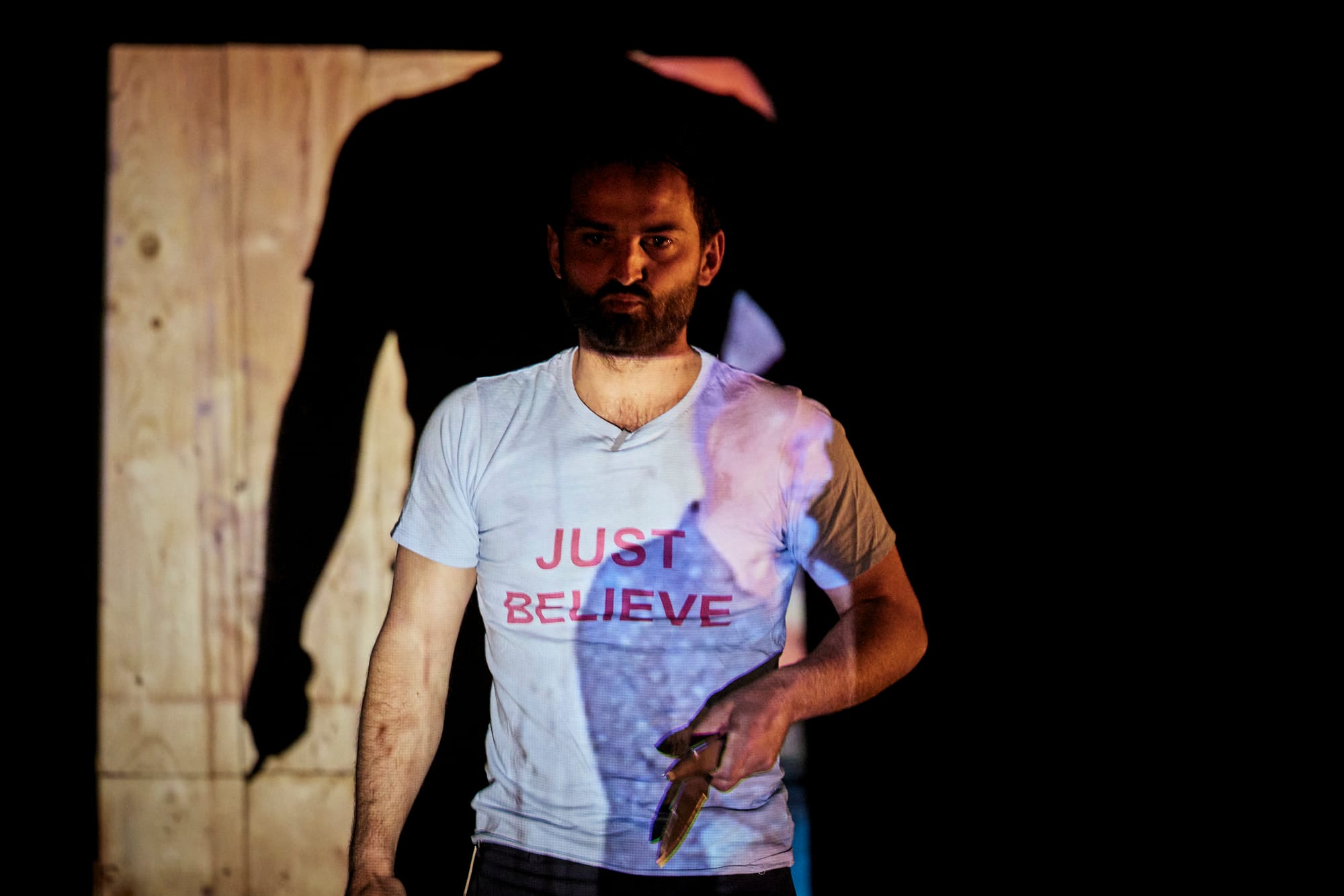
What was circus for you then, and how did this evolve through your artistic and personal experiences?
EP: Circus has always been the place for people with singularities in their minds and bodies. In my head, its meaning referred to the collective perception of the characters in the sector, and the point of interest was the people with strong characters who populated it. After working with Arnaud, my perspective changed a little. I was more intrigued by thinking about the connection of circus people, the possible partnership, and the combination of a plurality of people working together on a project. Even in the most dangerous situation, their preoccupation is constantly the other person. I asked myself what is the role or the value of having a plurality of people working together. Then, during my training as a teacher, my professor said to me that when focusing on inclusivity in circus, it encourages you to reach the beauty inside the smallest things you can find. Looking in this direction has been a pretty efficient value.
The Warrior's Rest is a solo full of references. Can you tell me more about the characters and events that you quote?
EP: Starting from the title, The Warrior's Rest. I like the English translation that refers more precisely to the show's main topic and underlines better its meaning: releasing the armour. When I started thinking about this project, it was during that time that the question of plagiarism in the circus sector was spreading. I asked myself how I could quote references as sources of inspiration inside the plot and make them interact with who I am. I had a big aesthetic crush on Miguel Gutierrez when I was 16, and I chose to combine the ending of one of his shows with my solo. There is quite a philosophy in his work. He is quite a different, sensible author who wants to bring art into contact with people in the most effective way so that they can continue their search alone after. His way of singing that song at the end of his show - the same song I used at the beginning of mine - leaving the stage empty behind was one of the most touching and honest acts I have seen happen as a performer in the audience. If I go on stage now, it is because there have been people with this attitude before me. If I believe things can happen in that space, it is because I have seen it happen before. Maybe I saw him leaving the stage empty as an invitation to continue the scene. So I did. Bringing him on stage with me was the most genuine intention.
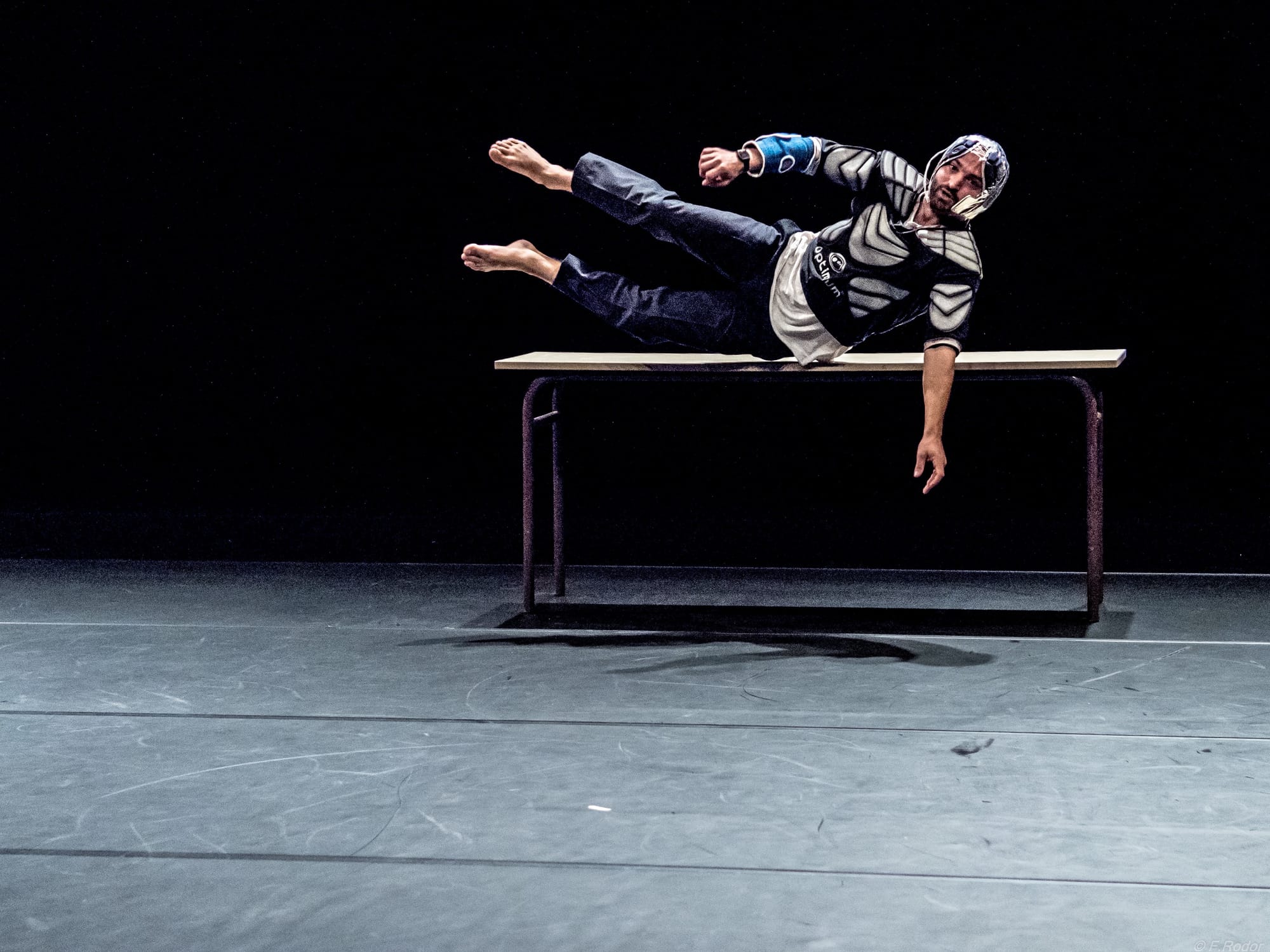
The humour element is quite pivotal in your relationship with the audience and yourself. What is the role of the interaction in the show?
EP: What was super fun in the making process was thinking in terms of chained small acts. You say to yourself, “I want that to appear, and then this, and later that”, but inside your mind, there is no straight way of doing things. In the show with Arnaud, for example, there is no way we can talk with people directly, we don't even look up to them. As a person, I like approaching people and talking with them, and I generally am always in relation, talking a lot. I wanted this quality in the show, thinking of it as an aperò moment, a dinner party, a talk show, something collective, with the same energy, guided but disorienting at the same time. I told myself that since I talk about myself, how I see things, and who I am, I can also add someone searching for other things and see what happens in the dialogue. You can never know people's reactions, and of course, this is one of the few elements that brings surprises.
What are the good or bad aspects of shaping such a personal show?
EP: In the beginning, it was worrying, thinking about feeling naked on stage, putting some aspects you are questioning privately under the spotlight. Through time, I became at ease with the questions themselves, since you know yourself and what sides you can bring to the surface. When you talk about personal stuff, it is because the same condition can be related to all people. If there is something inside I still do not know clearly, I leave it hidden there. It is a healing process because you become confident in dealing with your fragilities. Maybe some people think you are ego-centric. That’s the risk you take. The question is: What kind of person do you want to be on stage? If you want to be someone else, maybe this is not your ideal job.
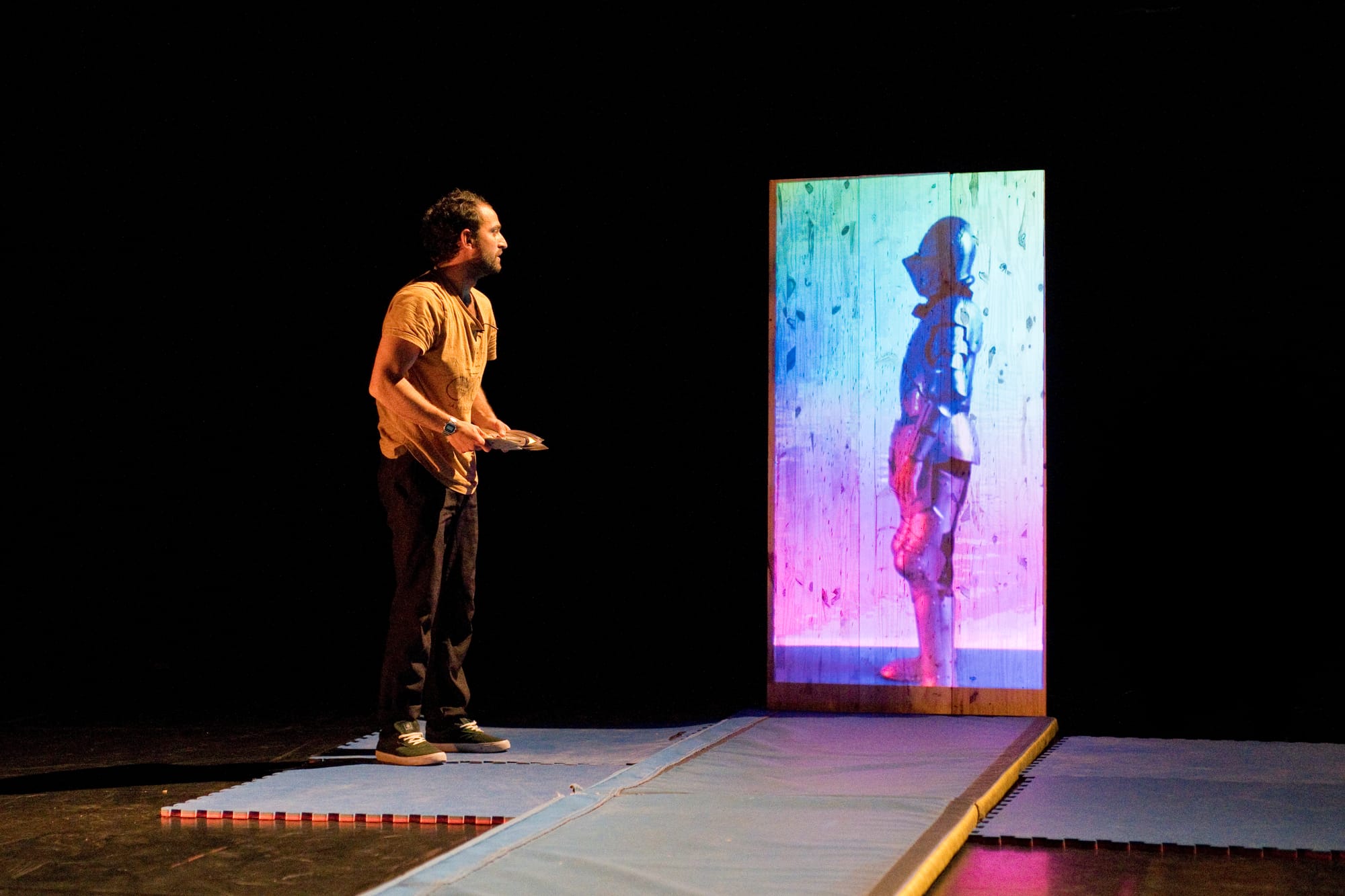
How did you develop the role of the devices and objects you bring on stage?
EP: I enjoy mixing technologies, especially connecting them to my previous knowledge of electrical equipment. I wanted to work on the projections and decided to use something simple. I prefer to be lighter, so I tried it with my smartphone, and it worked. On stage, I am my technician, controlling devices and videos directly. I see this choice as a circus act since I wanted to develop something strictly technical in this piece, a bit like juggling. I arrive on stage, share a song, talk with my phone, and then try to text the audience. The rising attention to my sharing tool creates an intimate atmosphere. All that I share is stuck on this device. There is no criticism of digital tools in the show. A smartphone is simply the perfect tool for its dramaturgy. In the making, there has been more of a taste for retro digital techniques and referencing these aesthetics, like the first video projections used by Philippe Decouflé.
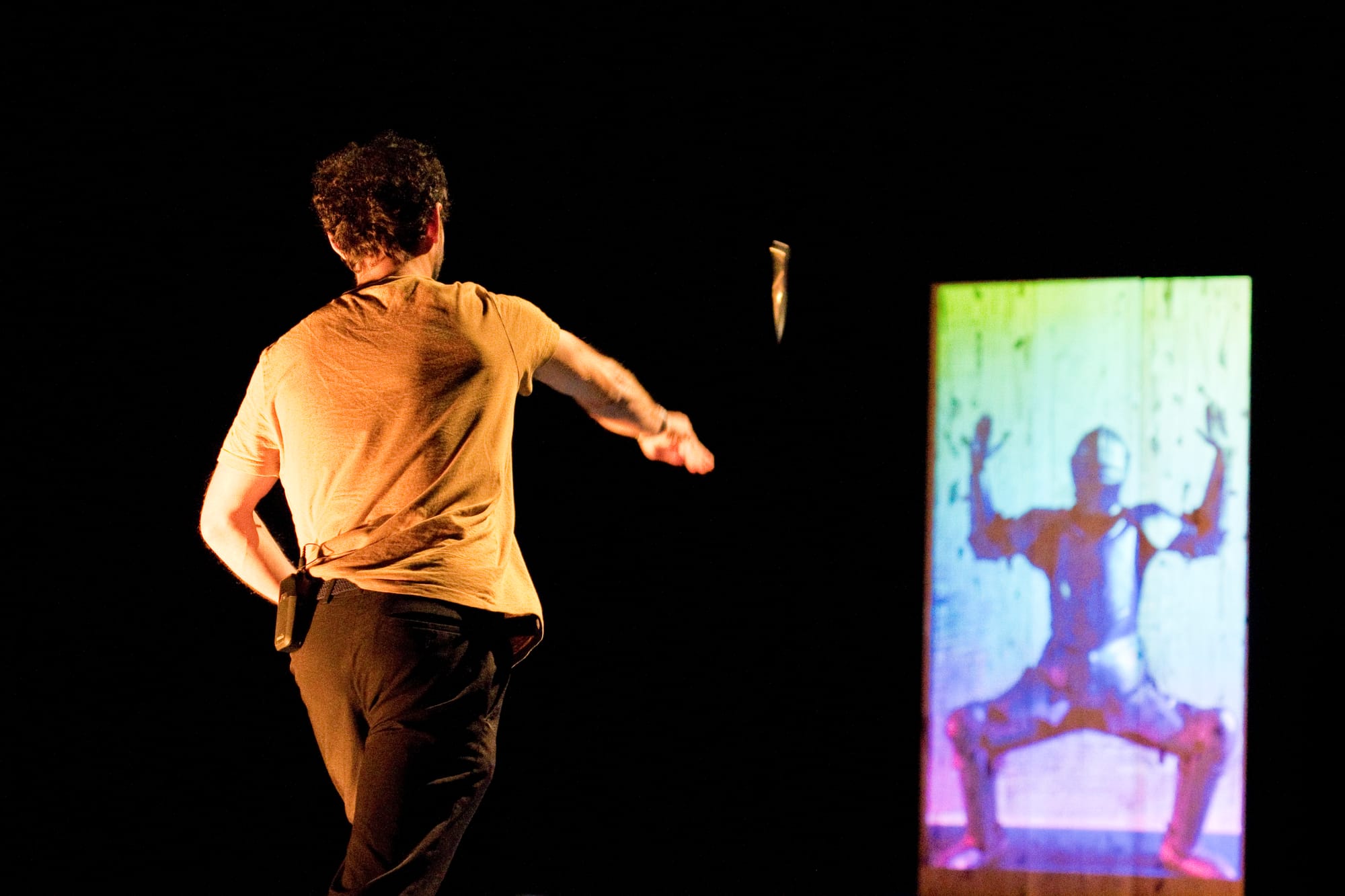
The digital element distorts time and space, confusing the hologram with the onsite presence. What was your intention behind this choice?
EP: I am working on another show called Nous on a Rien vu venir (We Did Not See It Coming), with the help of Idriss Roca for the writing and Thomas Martin by my side to play, where we talk about our connections with the multimedia world. There is just a TV and a blue screen, and I perform a thousand tricks. I like working with digital technologies because it is a crucial question for our generation, and the spectral life we live together is a condition I am scared of. In The Warrior’s Rest, the desire to work on this subject matched a technical aspect. I always had my phone with me, thousands of pictures showing me my whole life, and I was interested in working with it. The feeling you get when you realise that this condition of belonging through your phone is a sort of ‘I am not alone’ feeling. That was also interesting; To bring to the surface the lack of connection all around people who use a phone to feel themselves amongst others, even though they are not physically there with them.
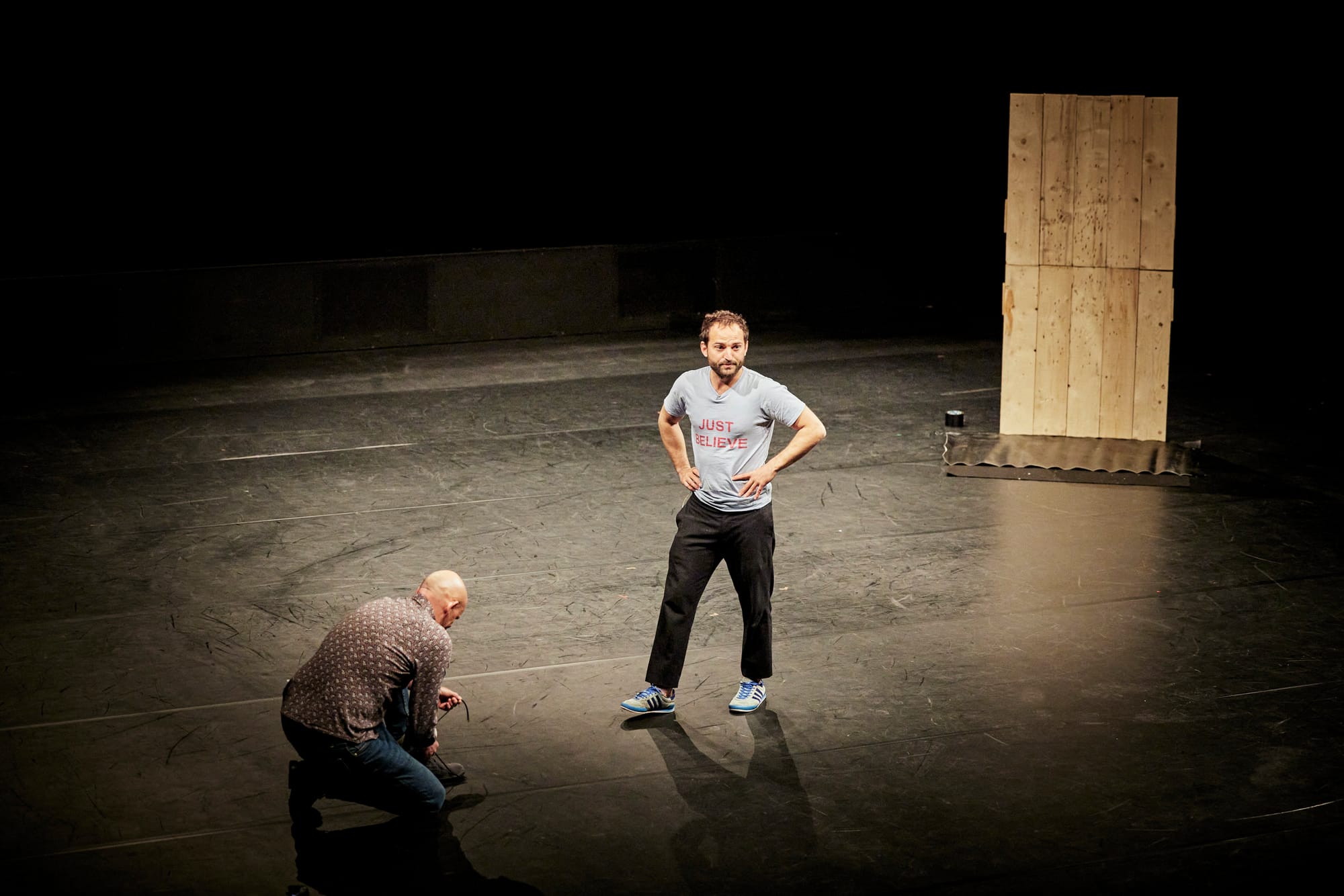
What did the circusnext program provide for you, and how did it influence your creation?
EP: I saw the call and thought I was not fitting. One day before the deadline, I had a motivational boost of ‘let’s try’. And then, I was surprised. I was in the middle of the creation when I applied, and my ideas were clear, but I was uncertain how to proceed. During the selection, it became evident that my approach was not smooth and was complex moving forward. I was wrongly concentrating on the physical pivotal actions more than thinking in terms of ‘this is really working, this is not’. The process changed my approach to doing the work.
Circusnext also worked as a sort of safe place where we were not alone. The laboratories have been exciting because of the shared experiences and the feeling that we had all the same problems. The variety of thoughts and approaches met in the international context have been nourishing. The first residency in Belgrad, for me, has been magical. The quality of the material I discovered working with Milan Manić that week was incredibly high, and the positive feedback after the public presentation motivated me to go forward. The selection allowed me to meet new people from Serbia, Italy, Portugal, and Germany. I extended my network, and that's the best gift. And receiving its final recognition signifies a lot to me.
You are one of the founders of a new collective structure in Toulouse, La Superette. How has it influenced your way of developing circus?
EP: Toulouse sees lots of circus companies sharing a common approach, and the idea was to become stronger by starting a new development structure, capable of uniting all of us under the same values and goals. Even if nationally we have at our disposal a system that supports us, we know the conditions of producing a show are becoming harder everywhere. It is a sort of militant idea. We think the landscape is changing, and we need to be more supportive of each other and stop being so dependent on the system. The structure was founded in 2022 and is becoming a cooperative, resembling more of an enterprise than an association. It is a different way of thinking. We want to design and share a helpful tool for emerging artists interested in developing their projects through collaborative ideas and teamwork. To assist them at the beginning of their career by creating the condition of supporting spontaneous research, simple actions like sharing the same space for residencies.
